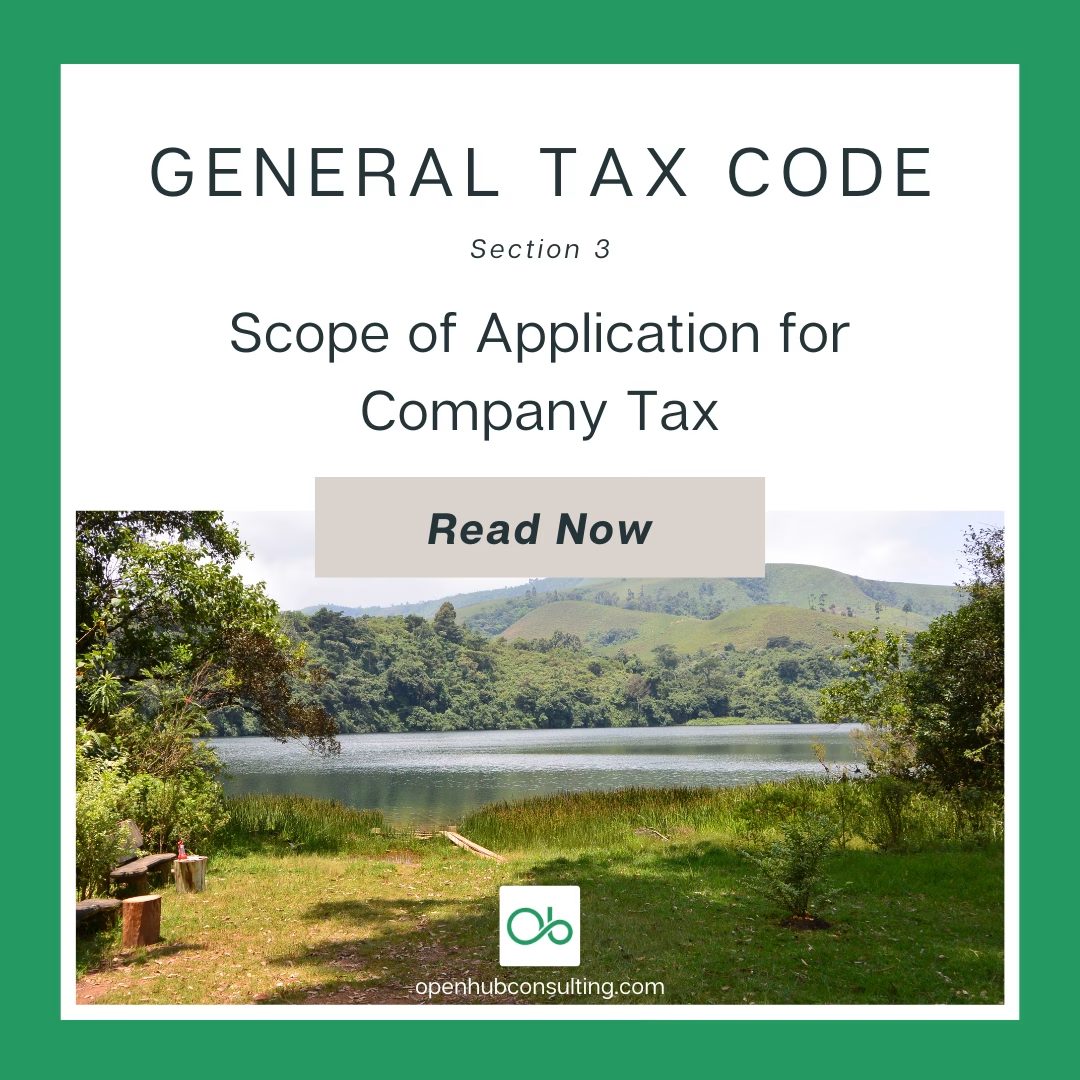Section 3 of the General Tax Code clarifies the scope of application for Company Tax. It identifies the entities and activities liable for taxation. Understanding this section is essential for businesses operating within Cameroon to stay compliant with tax laws.
Entities Subject to Company Tax
- Joint Stock Companies and Limited Liability Companies:
- Includes public limited liability companies, co-operative societies, and public establishments engaged in gainful activities.
- Civil Companies:
- Engaged in commercial, industrial, or agricultural activities, such as:
- Real estate transactions.
- Parceling and selling land following development and services.
- Renting or subletting furnished buildings.
- Engaged in commercial, industrial, or agricultural activities, such as:
- Partnerships Opting for Company Tax:
- Partnerships like joint ventures or limited liability partnerships that choose to be taxed as companies.
- Public Establishments and Regional Authorities:
- Public bodies engaging in gainful activities, including renting estates or earning revenue from floating capital.
- Microfinance Institutions:
- All microfinance entities are liable for Company Tax regardless of their structure.
What Activities Are Taxable?
- Profits from Activities in Cameroon:
- Only profits from activities or transactions carried out within Cameroon are liable to Company Tax.
- Independent Business Cycles:
- Even businesses without a permanent establishment in Cameroon are taxed if they finish a full business cycle in the country.
- Revenue from Built and Non-Built Estates:
- Includes income from leasing commercial properties.
Exemptions from Company Tax
Section 4 provides a list of exemptions for certain entities and activities, like:
- Agricultural Co-operatives:
- Exempt unless they engage in retail sales distinct from their main operations.
- Educational and Non-Profit Organizations:
- Includes private non-profit educational institutions.
- Specific Mutual Funds:
- Open-end investment companies (SICAV) and similar funds.
Why This Matters
- Clarifies Tax Obligations:
- Helps businesses understand their tax liabilities and exemptions.
- Encourages Compliance:
- Correct knowledge of taxable activities ensures businesses meet their obligations and avoid penalties.
- Supports Financial Planning:
- Identifying taxable and exempt activities allows for effective tax planning.
How to Stay Compliant
- Maintain Accurate Records:
- Document all transactions and separate taxable income from exempt activities.
- Leverage Exemptions:
- Ensure eligibility for exemptions and apply them correctly to reduce tax liabilities.
- Consult Professionals:
- Work with tax experts to navigate complex tax requirements. Our Tax Management Services can assist you.
Section 3 of the General Tax Code provides clarity on the scope of application for Company Tax. It ensures businesses understand their obligations. It also highlights opportunities for exemptions. By staying informed and compliant, businesses can focus on sustainable growth.
If this article helped you, you can support our work at OpenHub.
Support OpenHub DigitalFor more insights into Cameroon’s tax regulations, download your copy of the 2024 General Tax Code here.
Starting a business in Cameroon? Let us handle the paperwork for you. Our company incorporation services make it simple to register your business and follow local regulations. Learn more here.
From Insight to Implementation
Going through the administrative and legal landscape in Cameroon requires more than just information—it requires a grounded local partner. At OpenHub Consulting, we specialize in helping the diaspora and international investors turn their business visions into compliant, operational realities.
If you are ready to move forward, our team is prepared to manage your registration and compliance from start to finish.
Start Your Company Incorporation →Discover more from OpenHub Digital
Subscribe to get the latest posts sent to your email.

